This is the final Bird-Bolts edition of 2023, free this week for all to read. On New Year’s Eve I’ll announce some plans for 2024, including a new series on the free tier and some interesting new features (and challenges!) for paid subscribers.
I had two posters on my wall in my college dorm: David Bowie and Leonard Bernstein. I had worked at a record shop the previous summer, and we employees got to take home some of the promotional posters after the store was done with them, but we had to claim them quickly if they were artists in high demand (Van Halen, Prince, George Michael, etc.). I was the only one who wanted the Bernstein—which is understandable, because the employees were a bunch of teenagers. To this day, I remain devoted to both Ziggy Stardust and Lenny.
Bradly Cooper’s new film, Maestro, then, is the best of Christmas presents this year for me. I’m not competent as a film critic, but I will simply say that I loved it. Cooper and Carey Mulligan are phenomenally good in it—two of the best acting performances I’ve ever seen. Even if you’re not a classical-music lover, you should watch it. (By the way, if you’re not a classical-music lover, why is that? I’m not being critical with that question: I’m genuinely curious. Let me know in the comments.)
The film inspired me to overhaul The Rotation playlist this week in honor of the great Lenny. As promised, Debbie Wiseman’s Wolf Hall soundtrack stays at the top of the list through the beginning of 2024 in anticipation of
’s #WolfCrawl, but the rest of the list is all Bernstein—as a conductor, as a composer, and even as a pianist. So, if you have seen the film and would like to listen to some of his performances but are overwhelmed by the size of his discography, here is my idiosyncratic guide to some of my favorites, with the playlist linked at the end:Bernstein: Symphonic Dances from West Side Story, with the New York Philharmonic (Columbia/Sony, 1961)
You likely know West Side Story, in my view the best of all American musicals, and even if you don’t, you will probably recognize many of the tunes. This suite of dances works beautifully as an orchestral piece, independent of the drama.
Ravel: Piano Concerto in G Major, with the Columbia Symphony Orchestra, Bernstein conducting from the piano (Columbia/Sony, 1958)
This is not the best recording of Ravel’s masterpiece (for that, look to Claudio Abbado and Martha Argerich), but Lenny’s performance is full of his characteristic energy, as he conducts from the piano. He was an underrated pianist, and I wish that he had recorded more at the keyboard. The slow movement is gorgeous.
Elgar: The Enigma Variations, with the BBC Symphony Orchestra (DG, 1982)
This is a controversial recording. Bernstein thought that English orchestras did not play Elgar with the necessary emotion and power, especially the famous “Nimrod Variation” from this piece. This is by far the slowest ever recording of “Nimrod,” and the orchestra was not happy about it. Some say that it is an abomination. (Yes, I’ve heard someone use that word about it.) I say it’s glorious, my favorite recording of Enigma.
Mahler: Symphony No. 2 in C Minor, “Resurrection”, with the New York Philharmonic (DG, 1987)
Bernstein recorded the “Resurrection” Symphony at least four times, and to my ear this is the best of the recordings, especially sonically. And the presence of the great Christa Ludwig doesn’t hurt. In the Cooper film, you will see a recreation of the legendary performance of this at Ely Cathedral. Mahler was Bernstein’s favorite composer, and he recorded two complete cycles of the symphonies, one in the 1960s with Columbia/Sony and one in the 1980s with DG. Each of the cycles has its merits. The Third and the Seventh from the Columbia/Sony cycle are both landmarks as well, and the Sixth is a barn-burner.
Bernstein: Chichester Psalms, with the Israel Philharmonic (DG, 1978)
Composed during a sabbatical from his work with the New York Philharmonic, Chichester Psalms is a profoundly spiritual piece that sets the Hebrew texts of six Psalms in three movements.
Haydn: Symphony No. 82 in C Major, “The Bear,” with the New York Philharmonic (Columbia/Sony, 1965)
Lenny was one of the great Haydn conductors. (And that’s high praise from me, because if you know me, you know that Haydn is my favorite composer—most of the time.) He channeled the composer’s humor and energy, and so all of his Haydn recordings are a blast. He recorded all twelve London symphonies and all six Paris symphonies (of which this is the first).
Stravinsky: Le Sacre du Printemps (“The Rite of Spring”), with the New York Philharmonic (Columbia/Sony, 1958)
Savage performance. Will knock you over, mess you up.
Copland: Appalachian Spring, with the New York Philharmonic (Columbia/Sony, 1962)
Along with West Side Story, this is the most quintessentially American of my choices. Bernstein and Copland were close friends, and the affection comes through in this luminous performance.
Bernstein: Symphony No. 2, “The Age of Anxiety,” with the New York Philharmonic and Philippe Entremont (piano)
This is my favorite of Bernstein’s three symphonies, though it sounds more like an enormous piano concerto. The composer was at the piano for the premiere, but for this recording, Bernstein invited the wonderful pianist Philippe Entremont. This is not easy listening, but it includes some fantastic jazz-inflected sections, especially during “The Masque,” and Lenny gets both the NY Phil and Entremont to swing here.
Shostakovich: Symphony No. 5 in D Minor, with the New York Philharmonic (Columbia/Sony, 1959)
Shostakovich’s masterpiece pairs well with “The Age of Anxiety,” but with more anxiety and double the paranoia. Infamously, Shostakovich wrote this in response to Stalin’s displeasure with his music (displeasure which could have led to the gulag or worse), specifically, an unfavorable review in Pravda. He wrote the symphony as “a Soviet artist’s response to just criticism,” though there is ongoing controversy about how much this should be read ironically. In any case, Bernstein was deeply sympathetic with his Russian counterpart, who was one of the greatest composers of the twentieth century. There is also a magnificent recording by Bernstein of the Seventh Symphony (“Leningrad”) with the Chicago Symphony on DG.
Sibelius: Symphony No. 3 in C Major, with the New York Philharmonic (Columbia/Sony, 1968)
Bernstein’s Sibelius recordings are under-appreciated. I especially love this recording of the Third Symphony. The problem with so many recordings of this piece is that they tend to take the second movement too slowly. Lenny does not make that mistake; in fact, it positively dances.
Beethoven: Symphony No. 7 in A Major, with the Vienna Philharmonic (DG, 1980)
It’s Beethoven; it’s Bernstein; it’s Vienna. What more could you ask for?
Berlioz: Symphonie fantastique, with the Orchestre National de France (EMI/Warner, 1978)
Bernstein had a real affinity for French repertoire, and I wish he had recorded more of it. There is a superb box set of his recordings with the Orchestre National de France, entitled An American in Paris, from which this selection is taken. He was especially strong with Berlioz, as this recording demonstrates.
Schumann: Symphony No. 2 in C Major, with the Vienna Philharmonic (DG, 1986)
Bernstein recorded the Schumann cycle of four symphonies twice, once with the NY Phil for Columbia/Sony and once, late in his career, with the Vienna Phil for DG. This late recording shows that he had lost nothing, and it secures his place as one of the best of all Schumann conductors.
Dvořák: Symphony No. 9 in E Minor, with the New York Philharmonic (Columbia/Sony, 1962)
This symphony has been recorded hundreds of times, but you need look no further. There are a bunch of great ones, but this one is the best I know. Do not make the mistake of choosing his later recording for DG, which is unaccountably slow and boring.
Schubert: Symphony No. 9 in C Major, with the Concertgebouw Orchestra (DG, 1989)
As with the Dvořák, above, this symphony has been recorded hundreds of times, but there are not as many great ones—possibly because the energy of the symphony is difficult to sustain across what its great admirer Schumann called its “heavenly length.” Bruno Walter’s recording is great; George Szell’s is great; Charles Mackerras’s is great; and both of Bernstein’s are great, the early one with the New York Phil, and this late recording with the Concertgebouw. I chose this one because the sound quality is better, but you can’t go wrong with either.
Mozart: Symphony No. 41 in C Major, with the Vienna Philharmonic (DG, 1985)
Bernstein seems to have found his way with Mozart late in his career. Unlike his early Haydn, his early Mozart, while fine, is not stellar. However, these late DG recordings of the Requiem, the Great Mass, and the late symphonies, are some of the most beautiful Mozart you will ever hear. I would have added the Great Mass as well, but the playlist was getting quite long. I encourage you to seek it out if you’re interested
Schumann: Manfred Overture, with the New York Philharmonic (Columbia/Sony, 1961)
We end where Bernstein began. In 1944, Bruno Walter had the flu, and Bernstein had to sub for him at the last minute, with no rehearsal—his first concert with the New York Philharmonic and an episode that Bradley Cooper recreates in his film. First on the program was Schumann’s Manfred—not an easy piece to pull off. As far as I know, no recording exists of that concert, but we have this superb 1961 performance of the same piece. The sound quality is not great, but the performance is totally convincing.
So there it is—about eleven hours of Bernstein. That should get you started. You may have your own favorite Bernstein recordings. If so, please mention them in the comments. These are some of mine. It’s a huge discography, and it will repay your exploration of it with countless hours of pleasure.
Here is the link to this week’s playlist:
The Rotation from Personal Canon Formation
🖋️Please note: the playlist is on Apple Music, but all of these recordings should be available on the other services as well.
Thanks for reading, from my fancy internet typewriter to yours.




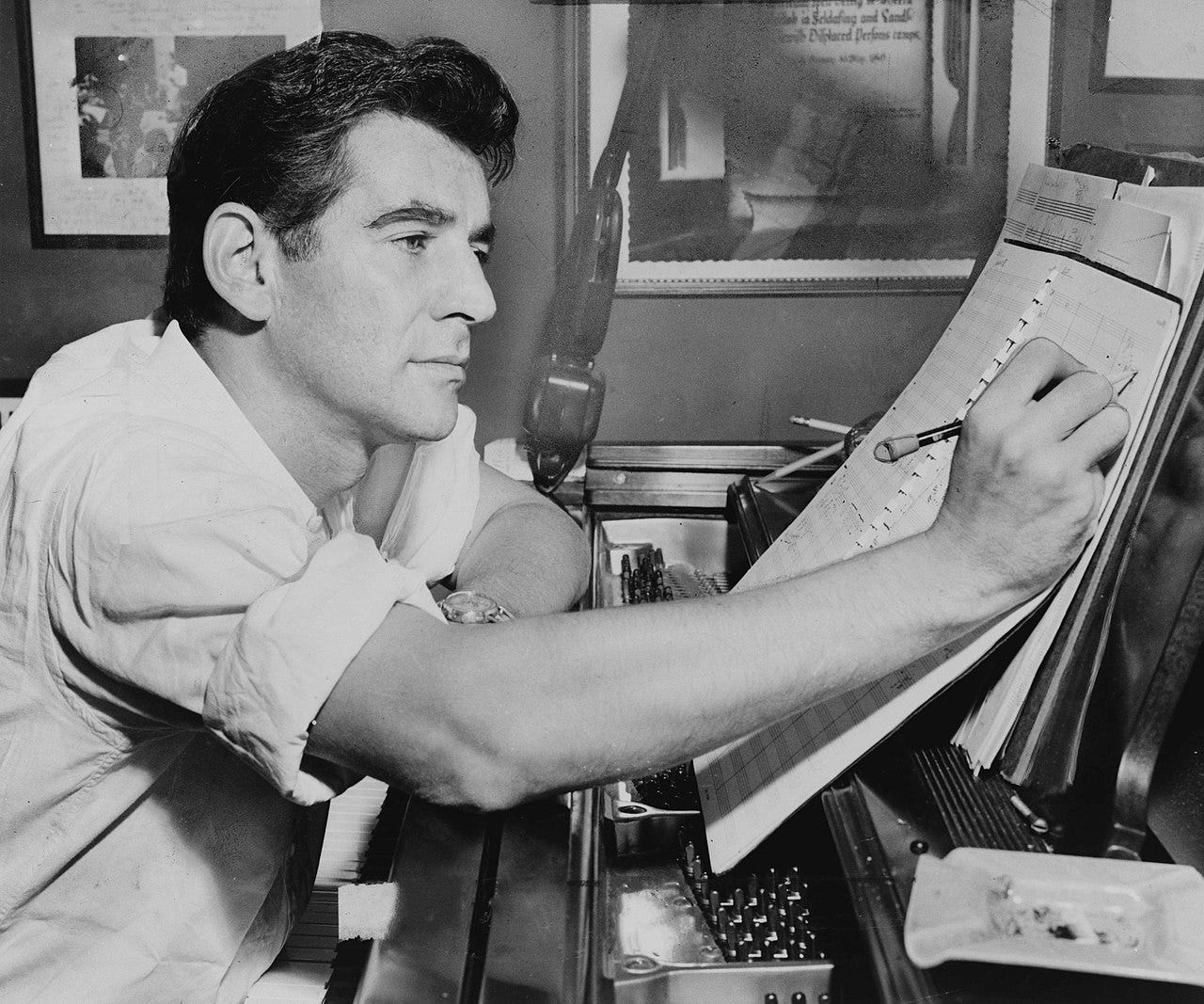
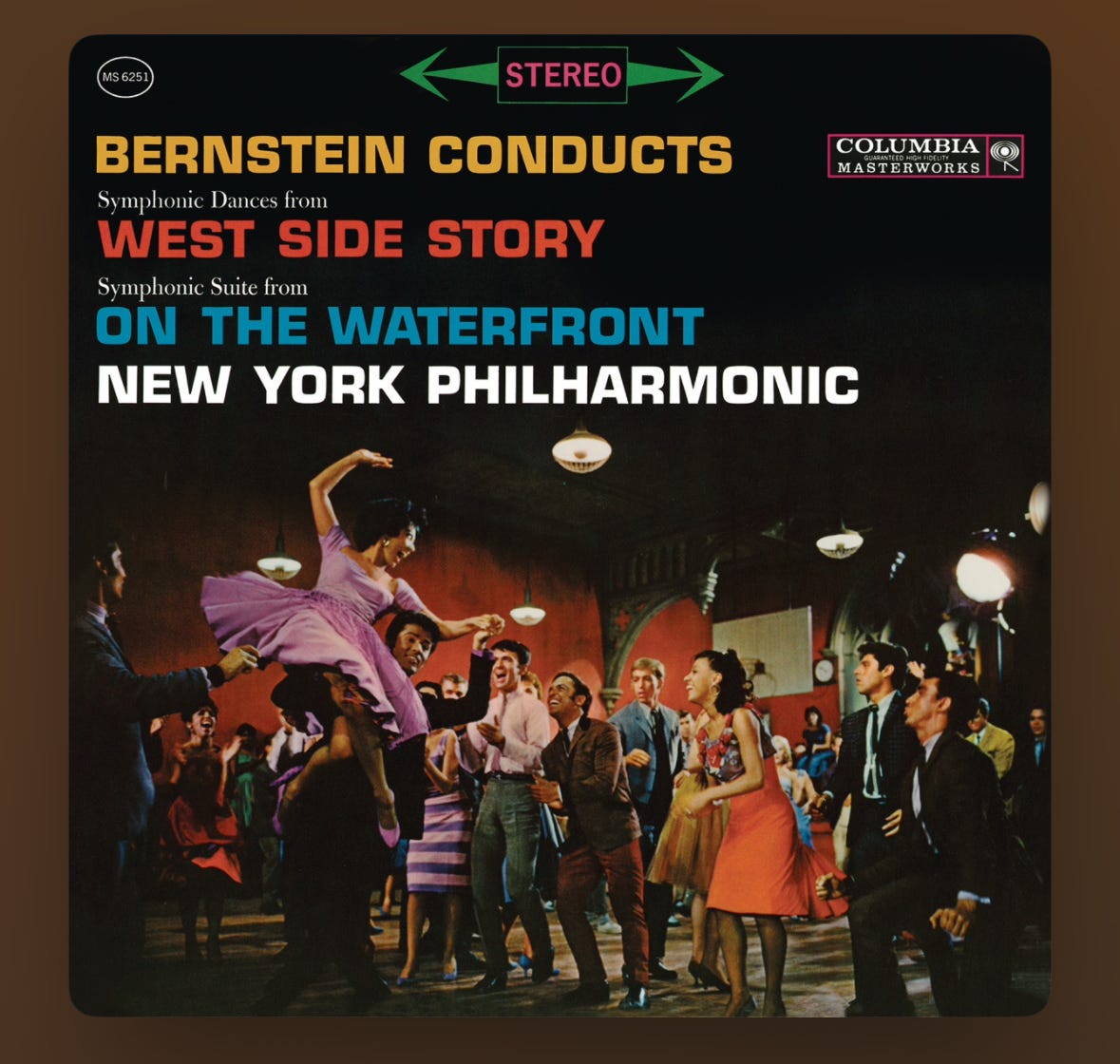
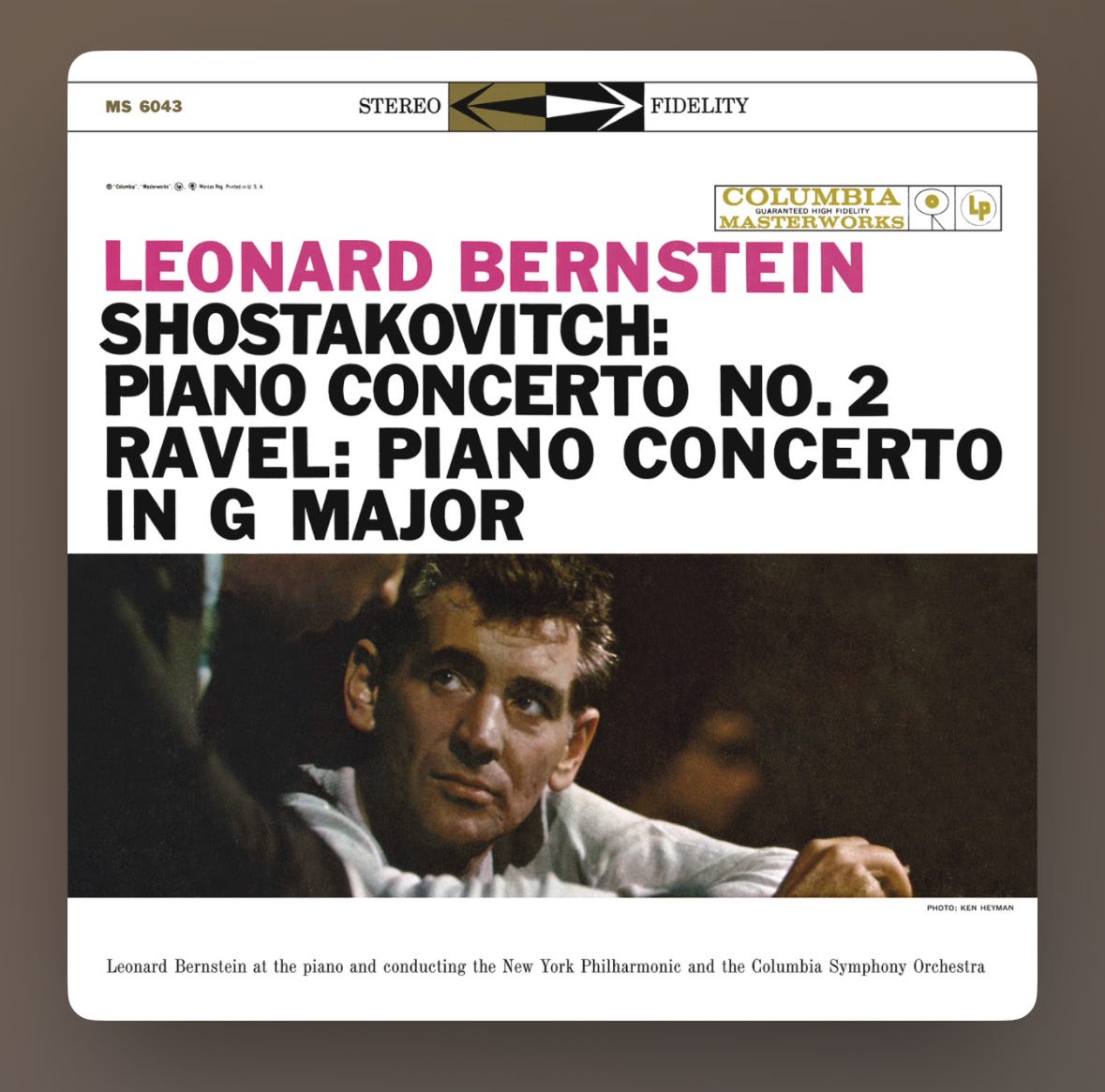
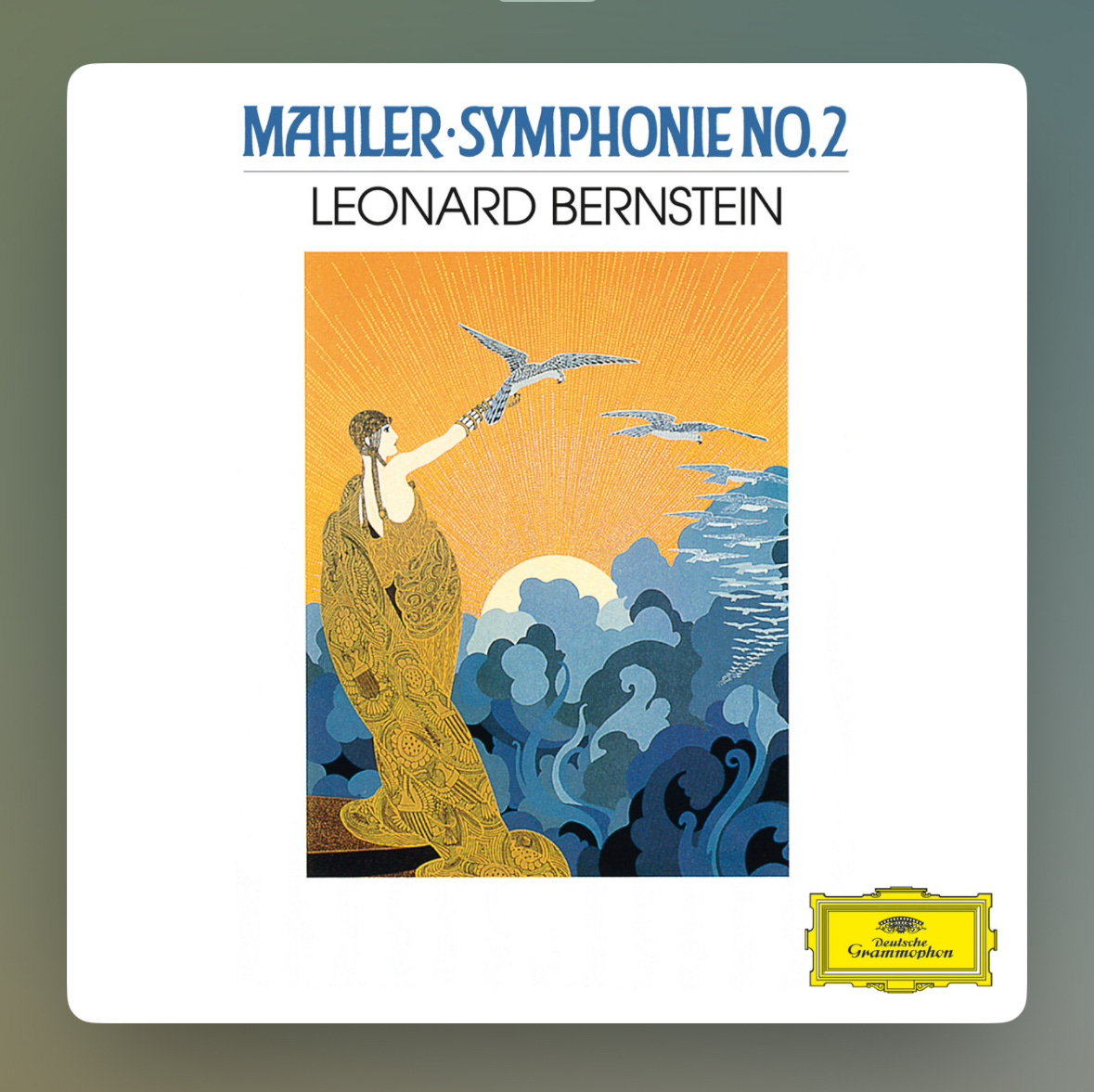
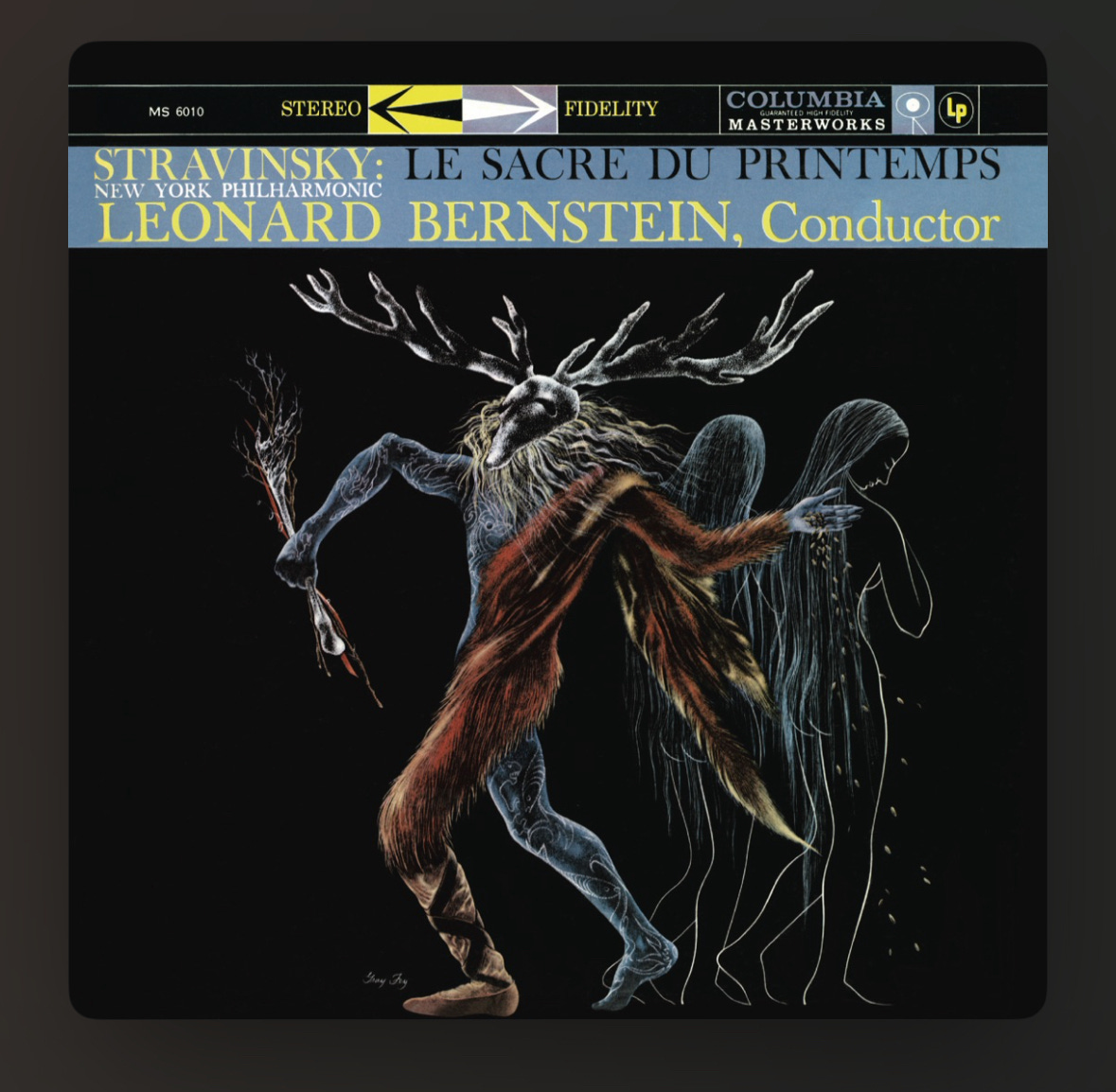
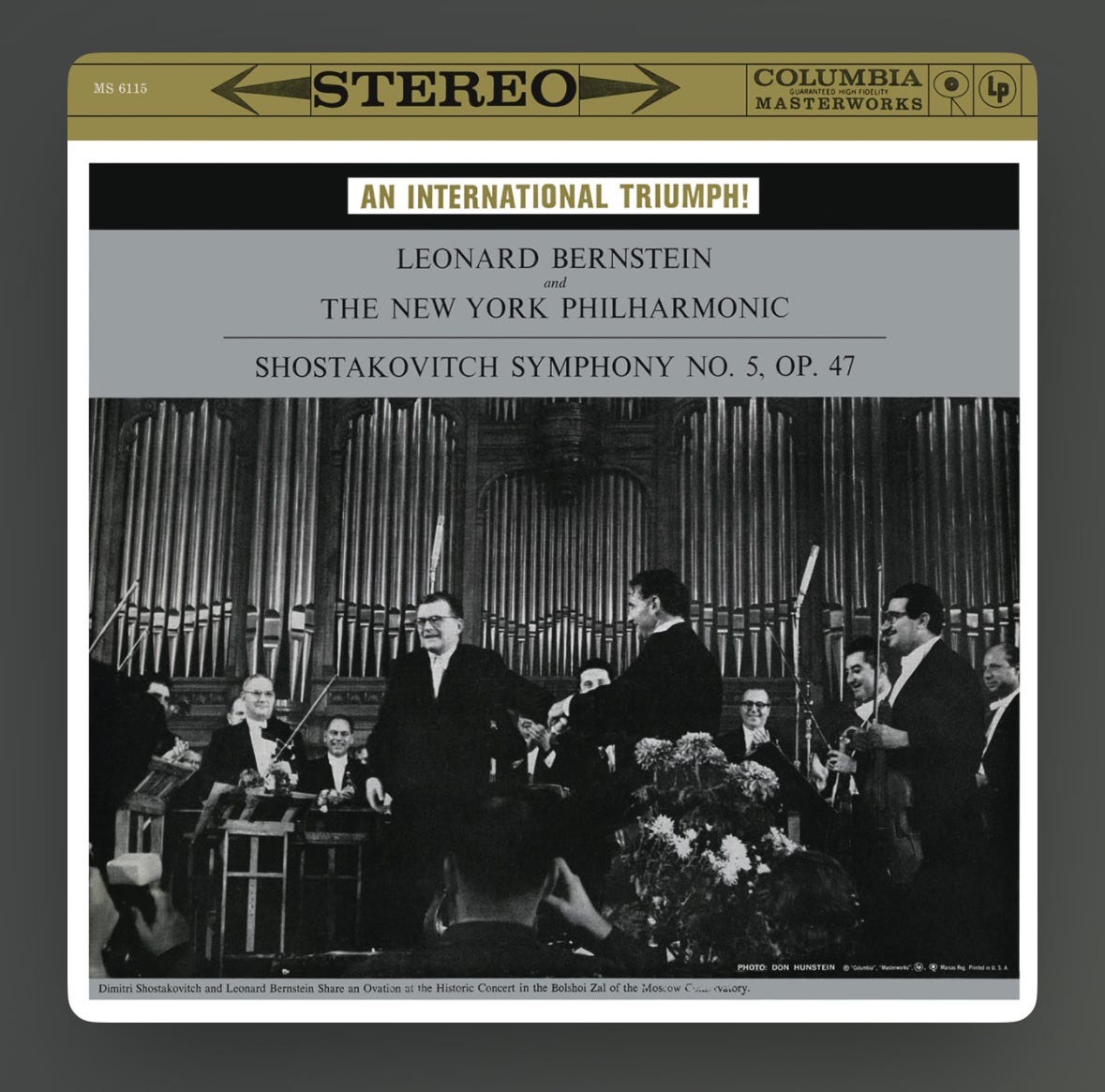

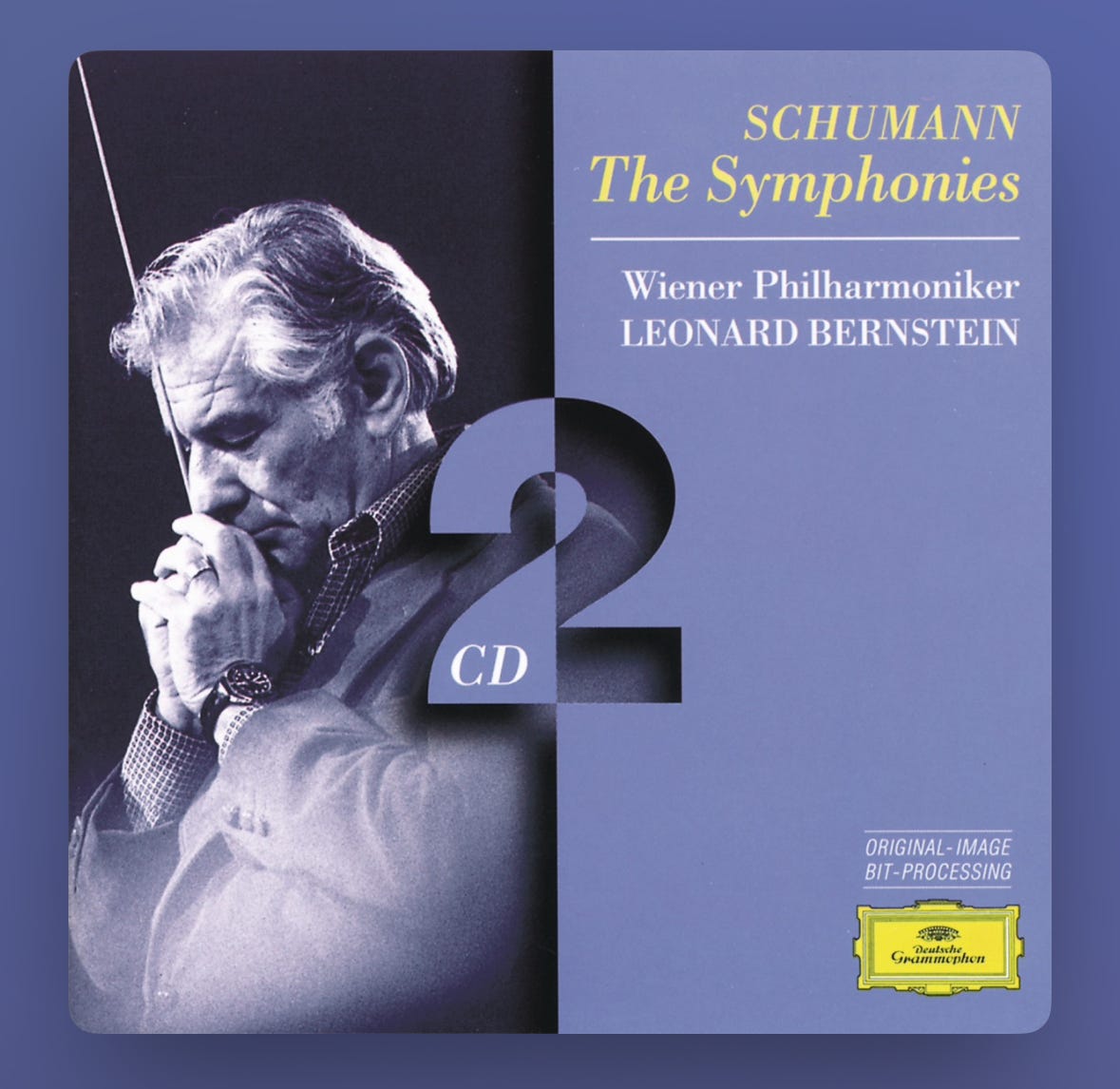
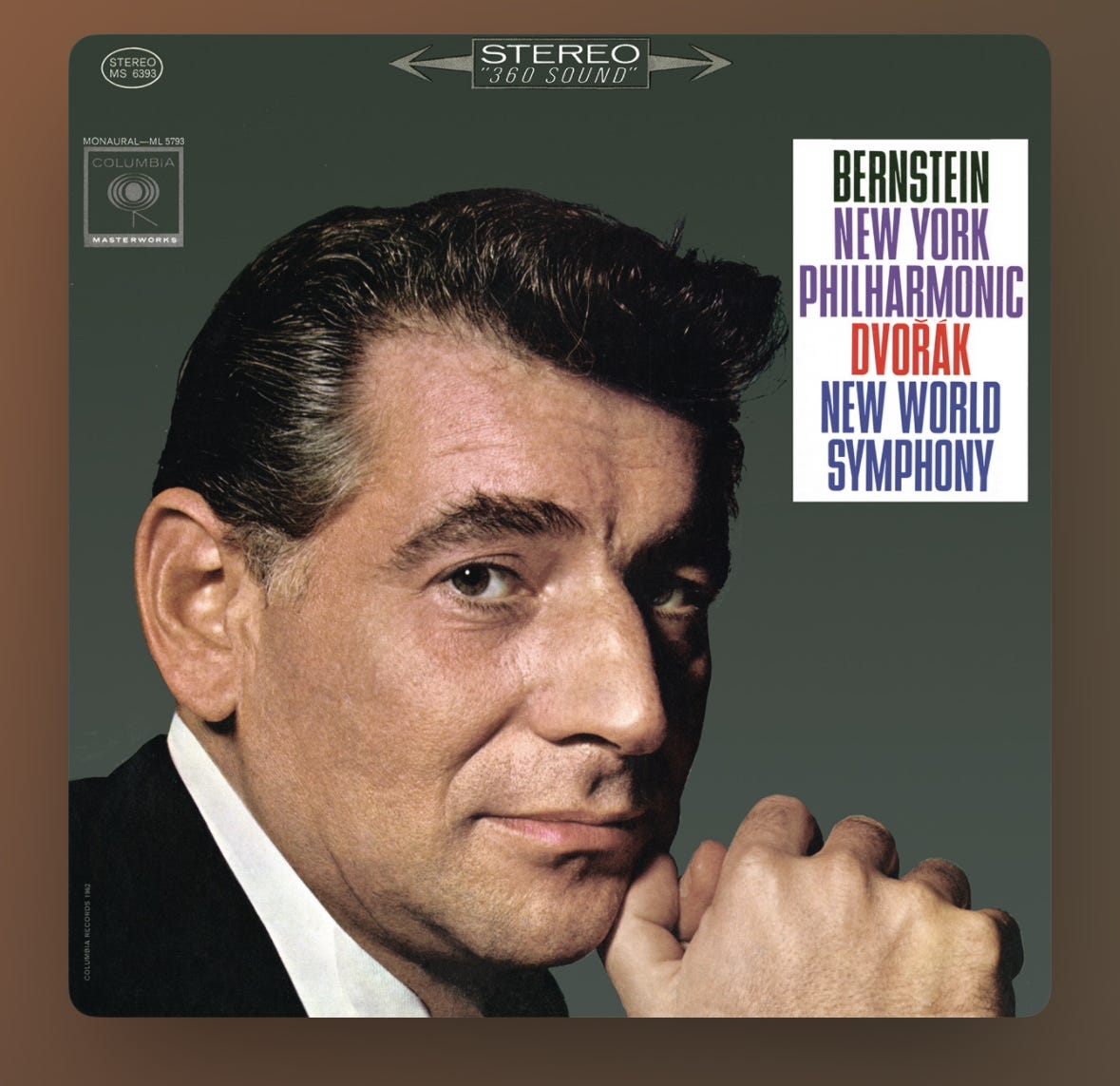
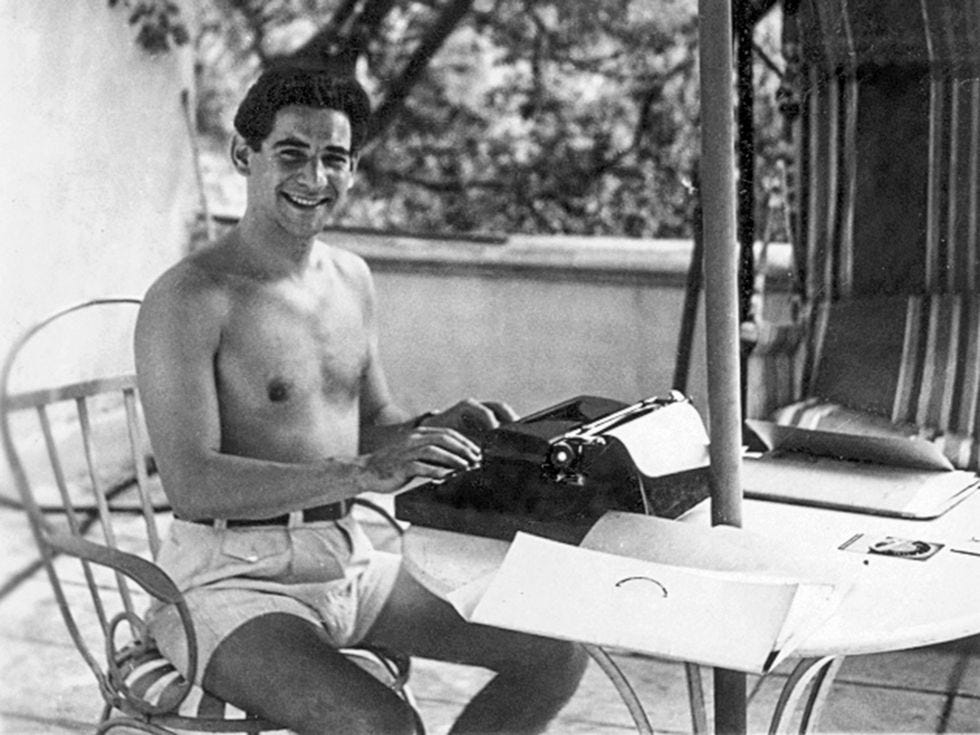
Saving this to properly listen to the playlist!
You’ve inspired me to catch Maestro in the cinema. Cooper is a wonderful artist and filmmaker in my opinion. He works from the inside out.
Long live Ziggy and Lenny in your heart, John!
An excellent list
For those who use Spotify, I made the playlist here:
https://open.spotify.com/playlist/0CCgkJ5OpeZhSEtu3ZG2mI?si=ly5S5whDRHODC4ewf-IRKw